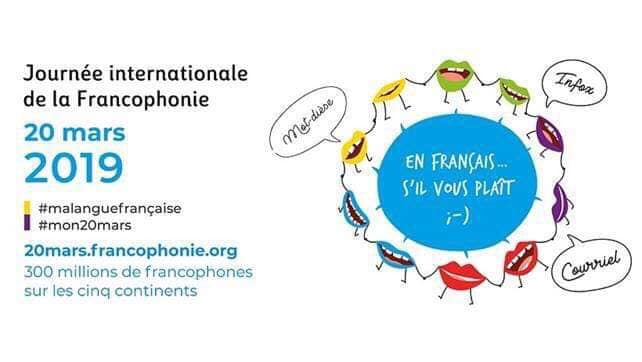Albanian People's Advocate Congratulates On The Case Of The Francophonie World Day

On the occasion of the Francophonie World Day, the People's Advocate was invited to attend a reception hosted by the Ministry for Europe and Foreign Affairs for the celebration of this day.
As a member of the Francophone Ombudsmen Association, the institution of the People's Advocate of Albania expresses congratulations on the Francophonie Day as an important element of international cooperation and partnership.
On 20 March 2019, as every year, 300 million Francophones spread across five continents celebrate their common language and diversity on the occasion of the International Francophonie Day.
This date is a reference to Niamey's signature on March 20, 1970 of the constitution, which led to the establishment of the Cultural and Technical Cooperation Agency, which would later become known as the International Francophone Organization. So in 2020 it will be 50 years.
The Francophonie Ombudsman's and Intermediary Association (AOMF) is one of the institutional network members of OIF. It celebrated 20 years of existence on 20 May 2018.
In fact, the idea to create an association that would be co-brothers and brokers of Francophonie was launched in October 1996, at the sixth international conference of the International Institute of Ombudsmen in Buenos Aires, Argentina by the People's Advocate in Quebec, Daniel Jacoby French Realtor Jacques Pelletier.
Their purpose was to allow mutual assistance and more coordination between Francophone countries on the issue of human rights. It also contained the development of democratic engagement, improved interventions, and strengthened the offices of Ombudsmen and Mediators of Francophonie.
This vision took shape in the financial support of the Francophonie Agency, since the first meeting of Ombudsmen and Interlocutors of Francophonie held in Kebek from 9 to 12 June 1997. The AOMF Statute was officially accepted by 18 founders in May 1998 in Nouakchott, Mauritania.
20 years later, AOMF has 50 member institutions spread across Europe, Africa, America and the Oceania. It continues to encourage the development and consolidation of independent French-language mediation institutions and, together with member institutions, work every day to improve the quality of public services in the Member States, an inalienable objective of protecting fundamental rights.
In November 2018, since the tenth congress of the association, the members signed the Namur Declaration.
The membership community has received several commitments and jointly called upon States and governments to undertake four major actions as follows:
· To support and protect the mediator / ombudsman institutions by signing their existence in the Constitution, guaranteeing their independence and giving them means to function in support of generally accepted international laws.
· Concrete engagement in a strategy for an open state including mediators / ombudsmen as a reason for their role as an institution which helps to strengthen and restore trust in public services.
· Promotion and implementation of an inclusive society in which every person, regardless of origin, situation and orientation, benefits from state protection, interpersonal solidarity and respect for fundamental rights, particularly when it is in a state of weakness or is part of a minority.
· To include explicitly the capabilities of the children's rights in the mediator / Ombudsman's legislative mandate or to establish special institutions for child rights advocates.
Communication within the Association as well as with external interlocutors remains a key factor in achieving the objectives.
On the occasion of this International Francophone Day, AOMF reiterates its support for the International Francophone Organization and recalls its commitment and commitment to the continuation of the Bamako Declaration, adopted in 2000 by the Heads of French-speaking States and Governments, I did to promote an internal democratic culture and full respect for human rights.

